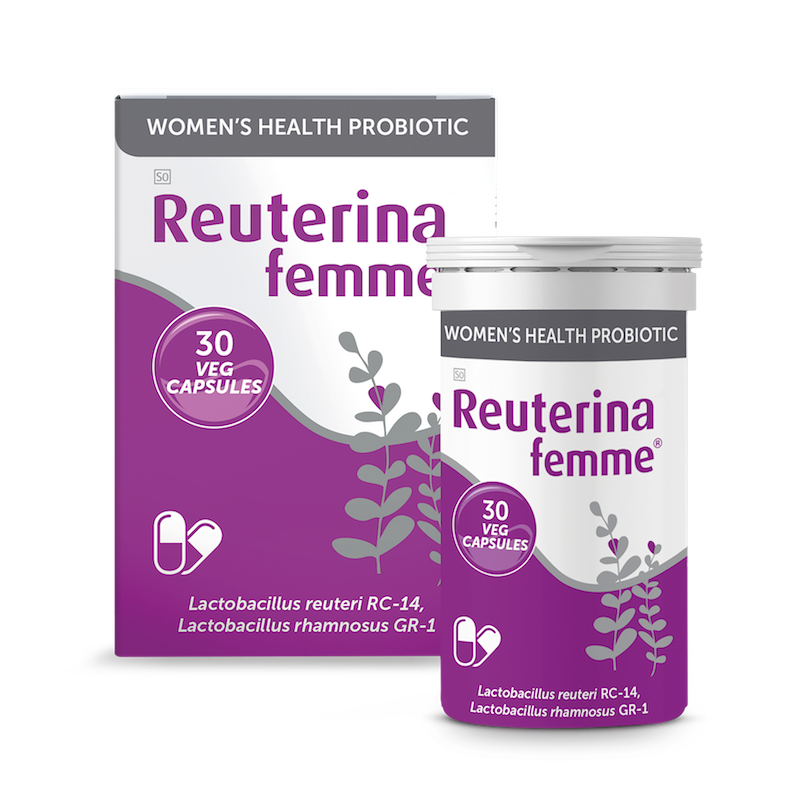Are you feeling itchy down there? You’re not alone! Vaginal thrush, also known as candidiasis, is a common fungal infection that affects about 70% of women worldwide every year1, with recurrent vulvovaginal candidiasis (RVVC) affecting up to 5% of women.2
But don’t let the ick factor get you down – there’s no need to suffer in silence. A few simple lifestyle changes can help keep things in check, like practicing good hygiene, changing your diet, avoiding synthetic and tight clothing3, and taking probiotics to restore the natural balance of vaginal flora.4a
What is thrush?
First things first, let’s talk about what causes this pesky problem.
There are many misconceptions surrounding thrush. No, chocolate does not cause thrush (sigh of relief). It’s not caused by sexually transmitted infections either, nor is it caused by swimming, coloured soaps, or blue puppies printed on your toilet paper.
Thrush is a condition caused by an overgrowth of yeast called Candida albicans, which is present in the vagina naturally. But when something throws off the delicate balance of bacteria and yeast (like taking antibiotics or experiencing hormonal changes), the yeast can start to multiply and cause uncomfortable symptoms.5a
What causes vaginal thrush?
Thrush can be caused by a number of things, including antibiotics, douches or vaginal sprays, birth control medication pregnancy, and certain health conditions such as diabetes, an iron deficiency or vitamin B12 deficiency, and an underactive thyroid (hypothyroidism).6a
Antibiotics can kill off the body’s natural bacteria, allowing the fungus to grow unchecked. Pregnancy and diabetes can also cause changes in the body that make it more susceptible to thrush. Certain medical conditions can weaken the immune system, making it harder for the body to fight off the fungus.6b
What are the symptoms of vaginal thrush?
Itching, an unpleasant burning sensation, and pain are common signs of a vaginal yeast infection. The vaginal membranes get red and have a whitish covering. A few days before your period, your symptoms may worsen. If the inflammation has progressed to the external genitals, the labia may also be red and swollen.5b
Vaginal yeast infections frequently result in a whitish-yellowish discharge. It might have a watery or lumpy consistency, similar to curdled milk or cottage cheese. When you have a yeast infection, sex can be unpleasant. Urinating can be painful if the urethra (the tube through which you urinate) is also irritated.5c
How probiotics can help
Probiotics are beneficial bacteria that can help to restore the balance of bacteria in the body. Studies show probiotics can be effective in inhibiting the growth of pathogenic microorganisms and maintaining the low pH environment of the vagina.4b
Some of the most effective probiotics for preventing thrush include Lactobacillus acidophilus, Lactobacillus rhamnosus, and Bifidobacterium bifidum.4c
It is important to note that probiotics should not be used as a substitute for other treatments for thrush, such as antifungal medications. If you suspect you have thrush, don’t be shy, talk to your GP or pharmacist about treatment options and get back to feeling confident and comfortable.
Find your balance with Reuterina® femme
The Reuterina® product line’s efficacy and safety remain unchanged. Over 200 clinical trials have been conducted to validate Reuterina®.7
Reuterina® offers a wide range of products for people of all ages, including Reuterina® femme.
Reuterina® femme is indicated to maintain and restore healthy flora.8a When ingested daily, Reuterina® femme helps to maintain a healthy vaginal flora and prevent vaginal infections.8b


The Reuterina® family of probiotics are available from selected Dis-Chem and Clicks stores and independent pharmacies nationwide. For more information, visit: https://reuterina.co.za/ and join the conversations on Instagram and Facebook.
References and product legals available on request. | 031 ZA Reut 012023
- Parenting Styles: What’s Yours and Why It Matters - July 18, 2025
- School Readiness: What Skills Really Matter? - July 18, 2025
- From Toddler to Teen: Teaching Financial Responsibility at Every Age - July 17, 2025




